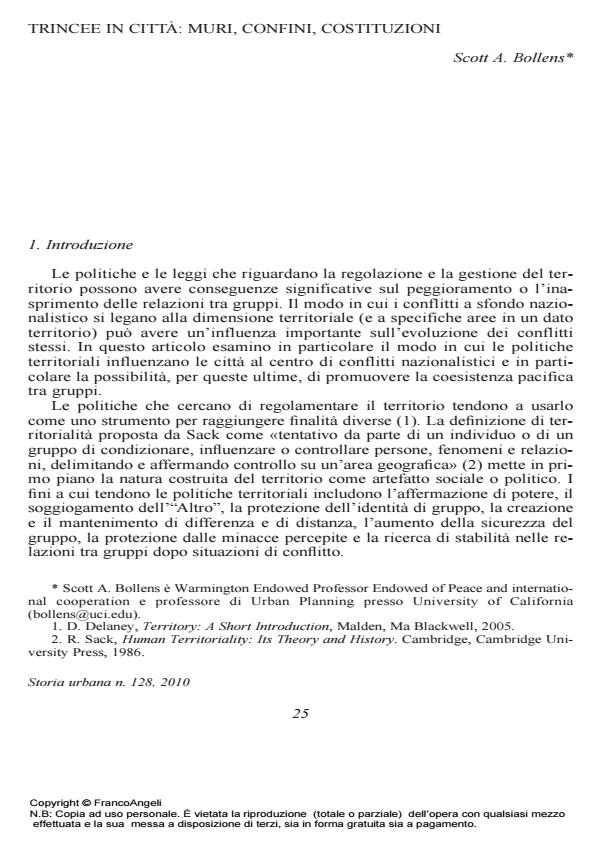Entrenching urban territory: wall, border, constitution
Journal title STORIA URBANA
Author/s Scott A. Bollens
Publishing Year 2011 Issue 2010/128
Language Italian Pages 27 P. 25-51 File size 811 KB
DOI 10.3280/SU2010-128003
DOI is like a bar code for intellectual property: to have more infomation
click here
Below, you can see the article first page
If you want to buy this article in PDF format, you can do it, following the instructions to buy download credits

FrancoAngeli is member of Publishers International Linking Association, Inc (PILA), a not-for-profit association which run the CrossRef service enabling links to and from online scholarly content.
This article investigates three different territorial/political approaches to managing inter-group nationalistic conflict. I am particularly interested in how "entrenching territory" - the construction of dividing walls, the drawing of political borders, and the establishment of constitutional sharing of political power - influences the ability of polarized cities to contribute positively to peaceful co-existence at local and national levels. My primary focus is on three cases: (I) the building of the Israeli separation wall and its effects on Arab Jerusalem and the prospects for a broader Israeli-Palestinian peace; (II) the demarcation of new political boundaries at the end of the 1992-95 Bosnian war [former Yugoslavia] and its effects on the sustainability of a mixed ethnic population in the city of Sarajevo; and (III) the relationship between the rigid electoral geography of constitutional power sharing in Lebanon and the possibilities for crossectarian political alignments resulting from demographic and spatial changes in and around Beirut. In each of these cases, ethnonational group differences are accommodated and reinforced geographically. The paper concludes by emphasizing the importance of the city when negotiating alternative political-territorial arrangements in divided countries.
Keywords: Polarized city Beirut Jerusalem Sarajevo Barriers and collective identity
Scott A. Bollens, Trincee in città: muri, confini, costituzioni in "STORIA URBANA " 128/2010, pp 25-51, DOI: 10.3280/SU2010-128003